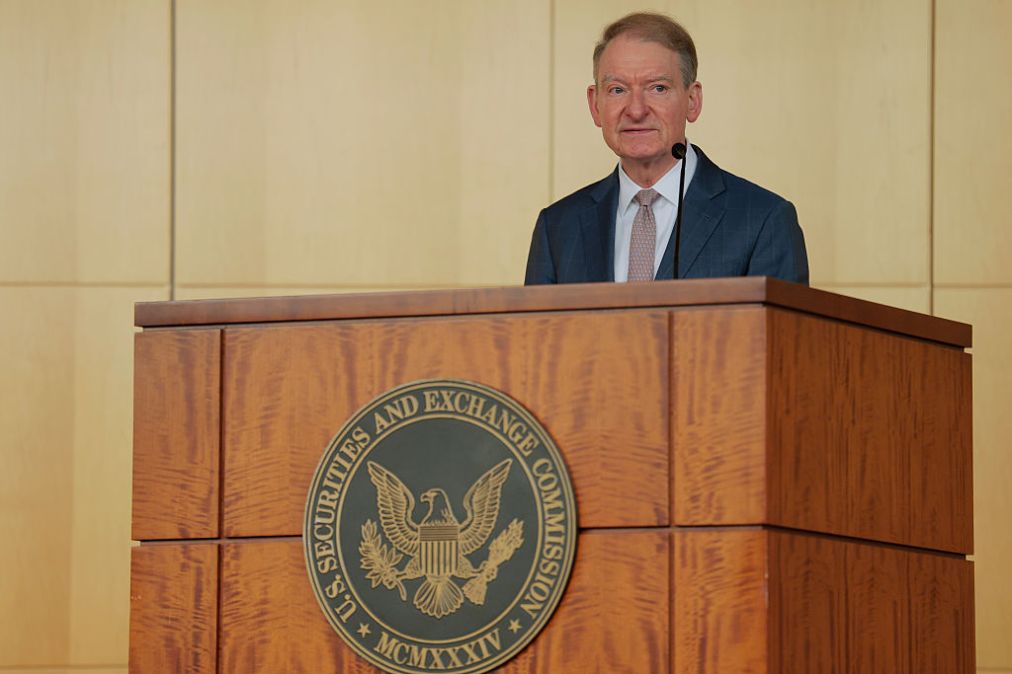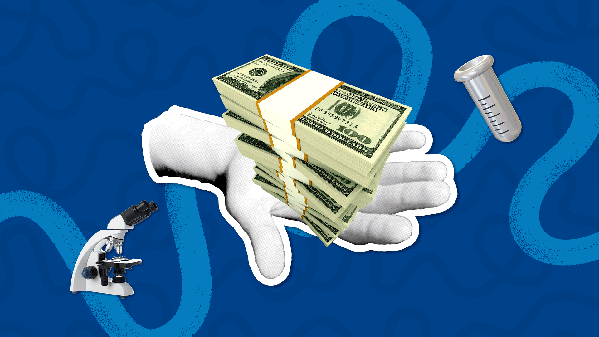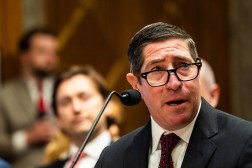SEC chair says DOGE found $90M in cost savings, but public receipts don’t add up

Welcoming the Department of Government Efficiency into the Securities and Exchange Commission has resulted in $90 million in cost savings at the independent financial regulator, Chairman Paul Atkins told lawmakers this week — but a FedScoop review of DOGE data found the current total to be tens of millions of dollars less than that estimate.
Appearing before a House Appropriations subcommittee Tuesday, Atkins said members of DOGE “already have been inside” the agency, looking at “overlapping contracts and inefficiencies” with a particular focus on technology investments.
“I think the savings is up to $90 million that they’ve identified,” Atkins told Rep. Ashley Hinson, R-Iowa, his second mention of that figure during the hearing. “So that’s a great start, and they’re not finished yet.”
An analysis of publicly available data on DOGE’s website puts cost savings at the SEC at $18.9 million, covering the termination of more than 40 contracts, plus a handful that have expired, been amended or rescoped. On its so-called “wall of receipts,” DOGE also lists agency cost savings via leases and grants, but Atkins didn’t reference either category during the hearing and there were no mentions of the SEC in those datasets.
The most recent entry date for any contract cancellation on DOGE’s website is May 9. The SEC on that date scrapped a deal with a San Antonio-based consulting firm called C2 Alaska for “integrated professional acquisition support.” According to DOGE, the termination of that contract saved more than $1.1 million. In February, the insurgent tech collective slashed an administrative support contract with C2 Alaska — a Native American-owned business and SBA 8(a) program participant — that, it said, saved the SEC almost $2 million.
DOGE’s highest-value cancellation at the SEC was a contract with KUSI Global for program management and consulting services within the agency’s Office of Minority and Women Inclusion. Terminating that contract saved the SEC $4 million, according to DOGE. There are seven more terminated contracts listed in DOGE’s data that have saved the SEC at least $1 million each.
DOGE and its supporters in Congress have said repeatedly that the group is conducting its work upending the federal government with “maximum transparency,” but it is currently fighting a court ruling that would subject it to Freedom of Information Act requests, asking the Supreme Court to intervene.
It’s possible DOGE has receipts to come on canceled SEC contacts that would make up for the more than $71 million discrepancy between Atkins’ figure and what’s been published online. The SEC declined to comment “beyond the Chairman’s remarks.”
“We had like 2,000 contractors on top of 5,100 at the end of last year,” Atkins said Tuesday. “I would have had to hire contractors to look at what contractors are doing, to make sure that’s what they’re doing. So through this process, we’ve been able to rationalize some of the contracting so far to the tune of $90 million, so I think that’s not chicken feed, and I think that’s really valuable.”
Beyond its cost savings claims — many of which have been pulled back or debunked — DOGE has left an indelible mark on Washington through its slashing of the federal workforce. Rep. Steny Hoyer, D-Md., asked Atkins about reports that the SEC has lost at least 15% of its staff, and whether DOGE was the driving force behind those departures.
Atkins said all of the SEC’s turnover has been through “voluntary” exits, pointing to retirements and individuals who took the Trump administration’s deferred resignation offer.
“These are free people who are deciding that they want to retire,” Atkins said. “So I view this as a normal thing. There are 600 and some odd people who left. … We miss, obviously, their expertise. But I think that we … have plenty of good expertise there at the Commission, and I intend to tap into that.”
Some of the technical expertise remaining at the SEC will be charged in the months ahead to formulate a plan for the agency’s Consolidated Audit Trail (CAT), a database that allows regulators to track trading activity throughout U.S. markets.
Hinson asked Atkins about any IT improvements CAT might need to better protect the sensitive financial information it houses. Atkins said the plan to review CAT will include an assessment of vulnerabilities.
“I really am happy for the help to look at our information technology system,” he said. “It’s time for a good scrubbing and spring cleaning to see where the gaps are. How we can undergird it and make it better.”
Madison Alder contributed to this report.






